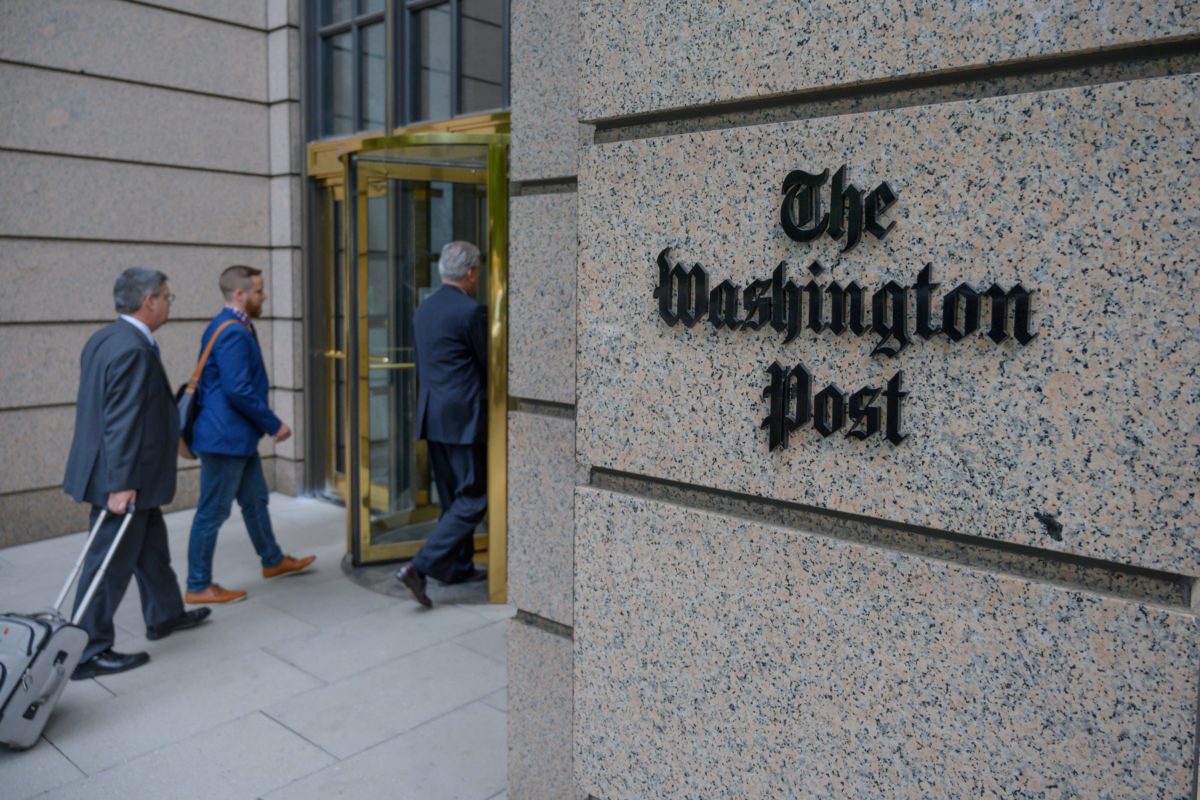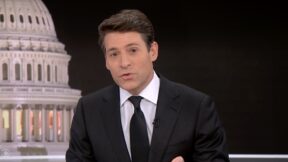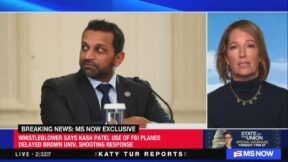Washington Post Fails to Disclose Soleimani Op-Ed Writer’s Board Seat on Missile Company

Eric Baradat/AFP/Getty Images
The Washington Post was criticized this week for failing to disclose that the writer of an op-ed arguing the assassination of Iranian Quds Force Supreme Commander Qasem Soleimani could “open the door to diplomacy” sits on the board of U.S. defense contractor and missile company Raytheon.
Former Bush administration national security adviser Stephen Hadley claimed in a Washington Post article that though Soleimani’s assassination “was a bold move with potentially far-reaching consequences,” and “unquestionably heightens the risk of war,” it “could also open the door to diplomacy.”
“While doing what’s necessary to protect U.S. military and civilian personnel in the region, the United States should pursue its fight with Iran outside of Iraqi territory,” Hadley declared. “The administration should treat any fresh attacks by Iran or its militias on U.S. forces in Iraq as an opportunity to shift the focus back on Iran as the true threat to Iraqi sovereignty.”
Hadley also argued that both former President Barack Obama and President Donald Trump have failed to withdraw from the Middle East because the United States “continues to have vital interests in the region: forestalling terrorist threats; supporting and protecting friends and allies; checking Iran’s nuclear ambitions and malign influence.”
Despite noting that Hadley “served as national security adviser during the George W. Bush administration,” the Washington Post failed to disclose the fact that Hadley is a board member of U.S. defense contractor Raytheon.
Raytheon’s role includes the production of missiles and missile defense systems, and the company has contracts with both the United States and nations in the Middle East, including Saudi Arabia and Qatar.
The lack of disclosure was called out by users on social media.
the writer here, Stephen Hadley, makes $305K/yr as a director at Raytheon, which built the Multi-Spectral Targeting System for the MQ-9 Reaper drone that killed Soleimani. None of this is disclosed in his “drones actually open the door for diplomacy” take. https://t.co/G0a4wVetEa pic.twitter.com/4UPxK7WRpp
— Adam H. Johnson (@adamjohnsonNYC) January 7, 2020
The ongoing failure of papers when it comes to disclosing financial conflicts of interest just never gets old. https://t.co/xihzHdsSVp
— Karl Bode (@KarlBode) January 7, 2020
Read the whole thread https://t.co/1SFllcHKQc
— Kendra “Gloom is My Beat” Pierre-Louis (@KendraWrites) January 7, 2020
jeeesus
— Patrick Blanchfield (@PatBlanchfield) January 7, 2020
In 2013, Hadley was called out by a Washington Post reporter for advocating for “a military strike against Syria” in the media while failing to disclose that he “owns about $875,000 worth of stock in Raytheon, which manufactures Tomahawk cruise missiles.”
“He told Bloomberg TV that Republicans should back the president’s use-of-force resolution and argued in a Washington Post op-ed that failure to punish Syrian President Bashar al-Assad for using chemical weapons against his own people would damage U.S. credibility if military action were threatened over Iran’s nuclear program,” reported Holly Yeager for the Washington Post. “While Hadley’s role in the Bush administration was always noted, there was no mention of his ties to Raytheon, manufacturer of Tomahawk cruise missiles, which likely would have been fired from Navy destroyers stationed in the eastern Mediterranean in strikes against Syria.”
“Hadley has been on the board of directors of Raytheon since 2009 and, according to a Securities and Exchange Commission filing from June included in the new report, owned 11,477 shares of Raytheon stock, now worth about $875,000,” she continued, adding, “Hadley was also paid $128,500 in cash compensation by the company last year, according to a filing with the SEC.”
New: The Mediaite One-Sheet "Newsletter of Newsletters"
Your daily summary and analysis of what the many, many media newsletters are saying and reporting. Subscribe now!






Comments
↓ Scroll down for comments ↓